Exclusive 3:16 Interview With David Hume
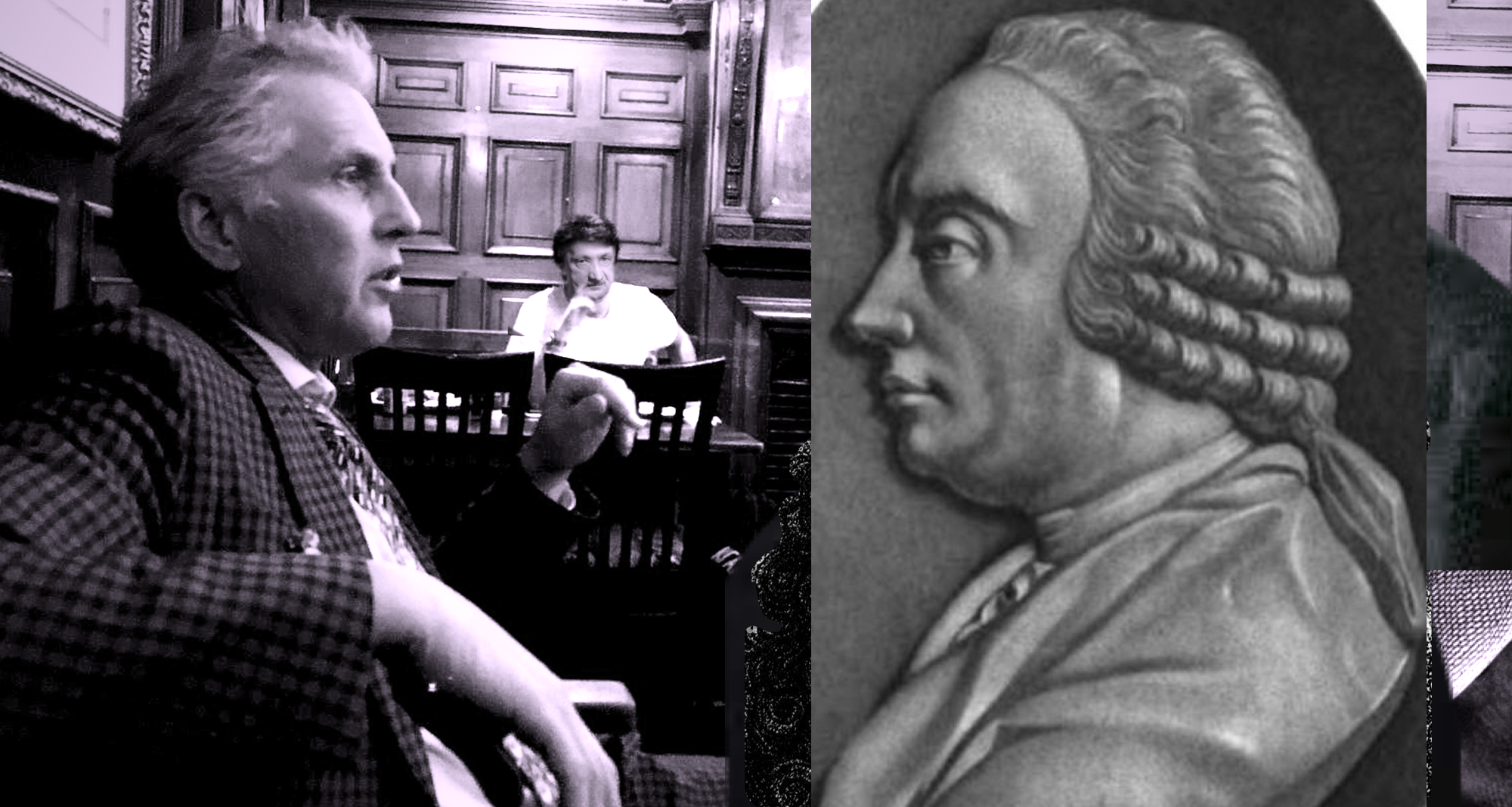
Interview with David Hume
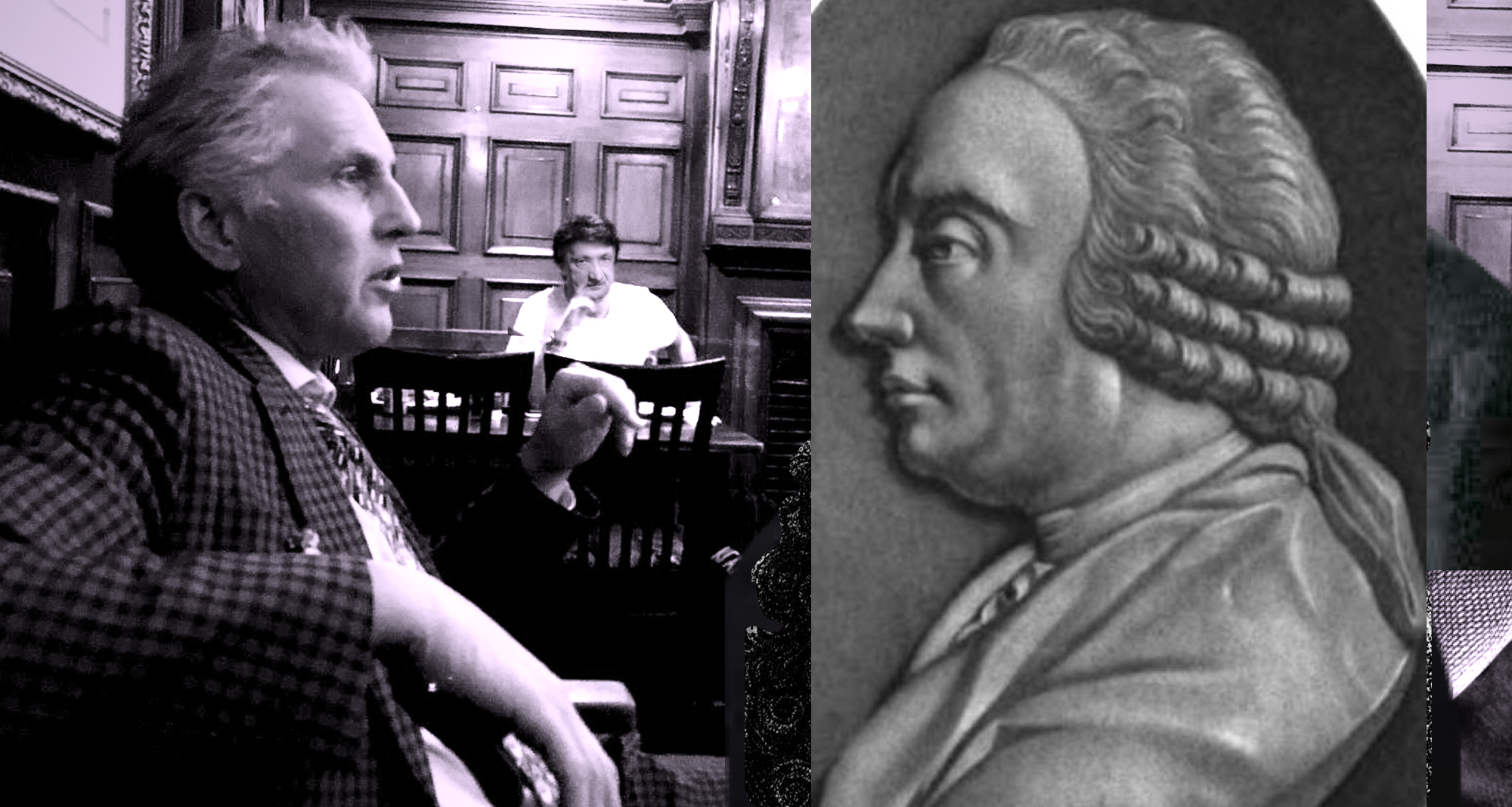
Generally regarded as one of the most important philosophers to write in English, David Hume is also well known as an historian and essayist. A master stylist in any genre, his major philosophical works—A Treatise of Human Nature , the Enquiries concerning Human Understanding and concerning the Principles of Morals , as well as his posthumously published Dialogues concerning Natural Religion —remain widely and deeply influential.
3:16: What made you become a philosopher?
David Hume: When I turned my eye inward, I found nothing but doubt and ignorance. Truth is, Richard, all the world conspires to oppose and contradict me; tho' such is my weakness that I feel all my opinions loosen and fall of themselves, when unsupported by the approbation of others. Can I be sure, that, in leaving all established opinions, I am following truth? and by what criterion shall I distinguish her, even if fortune should at last guide me on her footsteps? After the most accurate and exact of my reasonings, I can give no reason why I should assent to it; and feel nothing but a strong propensity to consider objects strongly in that view under which they appear to me. The memory, senses, and understanding, are all of them founded on the imagination. No wonder a principle so inconstant and fallacious should lead us into errors, when implicitly followed (as it must be) in all its variations. The understanding, when it acts alone, and according to its most general principles, entirely subverts itself, and leaves not the lowest degree of evidence in any proposition either in philosophy or common life. We have no choice left, but betwixt a false reason and none at all. Should I endeavor to banish these sentiments, I feel I should be a loser in point of pleasure; and this is the origin of my philosophy.
3:16: So are you a skeptic about everything? Can we know anything for certain?
DH: Where am I, or what? From what causes do I derive my existence, and to what condition shall I return? Whose favour shall I court, and whose anger must I dread? What beings surround me? On whom have I any influence, or who have any influence on me? I am confounded with all these questions, and begin to fancy myself in the most deplorable condition imaginable, environed with the deepest darkness, and utterly deprived of the Use of every member and faculty.
3:16: If the project to know is so deplorable, why do you persist in trying to answer these questions?
DH: If I must be a fool, as all those who reason or believe any thing certainly are, my follies shall at least be natural and agreeable.
3:16: I don’t follow.
DH: In all the incidents of life, we ought still to preserve our skepticism: If we believe that fire warms, or water refreshes, 'tis only because it costs us too much pains to think otherwise; nay, if we are philosophers, it ought only to be upon skeptical principles. I cannot forbear having a curiosity to be acquainted with the principles of moral good and evil etc. I am concerned for the condition of the learned world, which lies under such a deplorable ignorance in all these particulars. I feel an ambition arise in me of contributing to the instruction of mankind, and of acquiring a name by my inventions and discoveries.
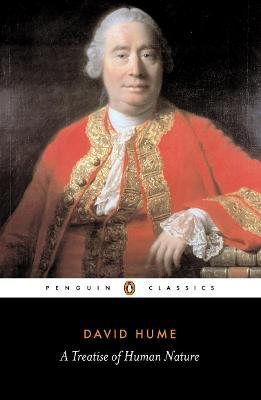
3:16: So does your philosophical skepticism put you at odds with contemporary scholars?
DH: Yes. I am confounded with that forlorn solitude in which I am placed in my philosophy. I have exposed myself to the enmity of all metaphysicians, logicians, mathematicians, and even theologians.
3:16: So what principles help you think from what seems to be a hopeless skeptical position?
DH: It’s not easy Richard. I say let us fix our attention out of ourselves as much as possible.
3:16: Can we do that?
DH: Well no, we really never advance a step beyond ourselves; nor can conceive any kind of existence but these perceptions which have appeared in that narrow compass: This is the universe of the imagination, nor have we any idea but what is there produced. Accordingly, an opinion or belief may be most accurately defined as a lively idea related or associated with a present impression; and is more properly an act of the sensitive than of the cognitive part of our natures.
3:16: So belief isn’t really cognitive?
DH: I’d put it like this: Belief in general consists in nothing but the vivacity of an idea. Again, the idea of existence is the very same with the idea of what we conceive to be existent. — any idea we please to form is the idea of a being; and the idea of a being is any idea we please to form.
3:16: So what’s the difference between ideas about the world and the world itself on your view?
DH: ‘The world’ as in an external existence?
3:16: Yes.
DH: Well, as to the notion of an external existence, when taken for something specifically different from our perceptions, we have shown its absurdity: And what we call a mind is nothing but a heap or collection of different perceptions united together by certain relations, and supposed, tho' falsely to be endowed with a perfect simplicity.
3:16: Can we be certain of anything then?
DH: The only existence of which we are certain are perceptions.
3:16: What about the self?
DH: The self? Well, when I enter most intimately into what I call myself, I always stumble on some particular perception or other.— I never can catch myself at any time without a perception, and never can observe any thing but the perception.— If any one think he has a different notion of himself, I must confess I can reason no longer with him.— I may venture to affirm of the rest of mankind, that they are nothing but a bundle of perceptions, which succeed each other with an inconceivable rapidity, and are in a perpetual flux and movement.
3:16: So Descartes goes wrong in thinking he can pick out a grounding principle beyond our perceptions?
DH: Well yes. Descartes and others, as a sovereign preservative against error and precipitate judgement, recommends an universal doubt, not only of all our former opinions and principles, but also of our very faculties; of whose veracity, say they, we must assure ourselves, by a chain of reasoning, deduced from some original principle, which cannot possibly be fallacious or deceitful. But neither is there any such original principle which has a prerogative above others, that are self-evident and convincing: or if there were, could we advance a step beyond it, but by the use of those very faculties, of which we are supposed to be already diffident. The Cartesian doubt, therefore, were it ever possible to be attained by any human creature (as it plainly is not) would be entirely incurable; and no reasoning could ever bring us to a state of assurance and conviction upon any subject.
3:16: You don’t completely dismiss Cartesian doubt though do you?
DH: Ah Richard, it must, however, be confessed, that this species of skepticism, when more moderate, may be understood in a very reasonable sense, and is a necessary preparative to the study of philosophy, by preserving a proper impartiality in our judgements, and weaning our mind from all those prejudices, which we may have imbibed from education or rash opinion. To begin with clear and self-evident principles, to advance by timorous and sure steps, to review frequently our conclusions, and examine accurately all their consequences; though by these means we shall make both a slow and a short progress in our systems; are the only methods, by which we can ever hope to reach truth, and attain a proper stability and certainty in our determinations.
3:16: Causality seems important to many explanations but you’re a bit skeptical about it aren’t you?
DH: Richard my man, if any pretend to define a cause by saying it is something productive of another, 'tis evident he would say nothing; for what does he mean by production? That we may define a cause to be an object precedent and contiguous to another, and where all the objects resembling the former are placed in like relations of precedency and contiguity to these objects that resemble the latter; or, a cause is an object precedent and contiguous to another, and so united with it, that the idea of the one determines the mind to form the idea of the other, and the Impression of the one to form a more lively idea of the other.
From these clear and plain definitions I infer, that all causes are of the same kind; and there is no foundation for the distinction betwixt efficient causes, and causes sine qua non; or betwixt efficient causes, and formal and material, and exemplary, and final causes: And that there is but one kind of necessity, and the common distinction betwixt moral and physical is without any foundation in nature: and that the distinction we often make betwixt power, and the exercise of it, is equally without foundation: And that the necessity of a cause to every beginning of existence, is not founded on any arguments demonstrative or intuitive: and in fine, that any thing may produce any thing; creation, annihilation, motion, reason, volition; all these may arise from one another, or from any other object we can imagine.
3:16: So reasoning by induction is, according to you, unjustified?
DH: From causes which appear similar we expect similar effects. This is the sum of all our experimental conclusions. Now it seems evident that, if this conclusion were formed by reason, it would be as perfect at first, and upon one instance, as after ever so long a course of experience. But the case is far otherwise. Nothing so like as eggs; yet no one, on account of this appearing similarity, expects the same taste and relish in all of them. It is only after a long course of uniform experiments in any kind, that we attain a firm reliance and security with regard to a particular event. Now where is that process of reasoning which, from one instance, draws a conclusion, so different from that which it infers from a hundred instances that are nowise different from that single one? This question I propose as much for the sake of information, as with an intention of raising difficulties. I cannot find, I cannot imagine any such reasoning.
3:16: I can see why the metaphysicians and natural scientists might have a headache because of you. Are you saying cause and effect are meaningless?
DH: Well Richard, let’s face it, when we talk of any being, whether of a superior or inferior nature, as endowed with a power or force proportioned to any effect, we have really no distinct meaning, and make use only of common words, without any clear and determinate ideas. And if we have really no idea of power or efficacy in any object, or of any real connection betwixt causes and effects, 'twill be to little purpose to prove that an efficacy is necessary in all operations. We do not understand our own meaning in talking so, but ignorantly confound ideas which are entirely distinct from each other.
3:16: So is 'causal power' talk of any kind just hogwash?
DH: The efficacy or energy of causes is neither placed in the causes themselves, nor in the Deity, nor in the concurrence of these two principles, but belongs entirely to the soul (or the bundle of perceptions) which considers the union of two or more objects in all past instances: 'Tis here that the real power of causes is placed, along with their connection and necessity. And in fine, we may observe a conjunction or a relation of cause and effect between different perceptions, but can never observe it between perceptions and objects. 'Tis impossible therefore, that, from the existence or any of the qualities of the former, we can ever form any conclusion concerning the existence of the latter, or ever satisfy our reason in this particular with regard to the existence of a Supreme Being.
3:16: And this is why you annoy the theologians too because you can’t have a prime mover from your approach can you?
DH: Tis well known that this principle, ‘whatever begins to exist must have a cause of existence,’ is the first step in the argument for the being of a supreme cause; and that, without it, 'tis impossible to go one step further in that argument.
3:16: So can reason lead us to infer from the existence of one object the existence of another?
DH: No. Reason can never satisfy us that the existence of any object does ever imply that of another.
3:16: But we often seem to make that kind of inference. If it’s not an operation of reason, what is it?
DH: When we pass from the impression of one to the idea and belief of another, we are not determined by reason, but by custom. In that proposition, God is, or indeed any other which regards existence, the idea of existence is no distinct idea which we unite with that of the object, and which is capable of forming a compound idea by the Union.
3:16: Not even in the case of God?
DH: Concerning this principle that the Deity is the prime mover of the Universe, who first created matter, and gave its original impulse, and likewise supports its existence, and successively bestows on it its motions; this opinion is certainly very curious. For, if the very idea be derived from an impression, the idea of a Deity proceeds from the same origin; and, if no impression implies any force or efficacy, 'tis equally impossible to discover, or even imagine, any such active principle in the Deity.— Since philosophers therefore have concluded, that matter cannot be endowed with any efficacious principle, because it is impossible to discover in it such a principle; the same course of reasoning should determine them to exclude it from the supreme Being.
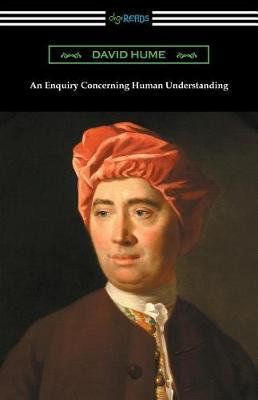
3:16: So what are you saying? That God doesn’t exist or that we can’t know what exists – including a Deity - because we have no idea what our ordinary concepts of reasoning, such as cause and effect, actually are?
DH: If you or anyone esteem my opinion absurd and impious, as it really is, I shall tell you how you may avoid it by concluding from the very first, that no one has an adequate idea of power or efficacy in any object; since neither in body nor spirit, neither in superior nor inferior natures, are they able to discover one single instance of it. And we have no idea of a being endowed with any power, much less of one endowed with infinite power.
3:16: Spinoza argued that everything was super rational?
DH: I assert the doctrine of the immateriality, simplicity, and indivisibility of a thinking substance, is a true atheism, and will serve to justify all these sentiments for which Spinoza is so universally infamous. This hideous hypothesis is almost the same with that of the immateriality of the soul, which has become so popular. All the absurdities which have been found in the systems of Spinoza, may likewise be discovered in that of the theologians: We cannot advance one step towards the establishing the simplicity and immateriality of the soul, without preparing the way for a dangerous and irrecoverable atheism.
3:16: What about morals? Can we reason about them?
DH: Don’t be daft. Reason has no influence on our passions and actions: Actions may be laudable or blameable, but they cannot be reasonable or unreasonable. That all beings in the universe, considered in themselves, appear entirely loose and independent of each other; 'Tis only by experience we learn their Influence and connection, and this influence we ought never to extend beyond experience.
3:16: What about justice? Isn’t that real?
DH: Justice is not a natural, but an artificial virtue Richard. Look, we may conclude, that the laws of justice, being universal and perfectly inflexible, can never be derived from nature. Suppose a person to have lent me a sum of money, on condition that it be restored in a few days; and also suppose, that, after expiration of the term agreed on, he demands the sum: I ask, what reason or motive have I to restore the money? Public interest is not naturally attach'd to the observation of the rules of justice, but is only connected with it, after an artificial convention, for the establishment of these rules. Unless we will allow that nature has established a sophistry, and rendered it necessary and unavoidable; we must allow that the sense of justice and injustice is not derived from nature, but arises artificially, tho' necessarily, from education and human conventions.
3:16: So justice comes from conventions?
DH: Here is a proposition which I think may be regarded as certain, that it is only from the selfishness and confined generosity of men, along with the scanty provision nature has made for his wants, that justice derives its origin. These impressions, which give rise to this sense of justice, are not natural to the mind of man, but arise from artifice and human conventions. Without such a convention, no one would ever have dreamed that there was such a virtue as justice, or have been induced to conform his actions to it. Taking any single act, my justice may be pernicious in every respect: And 'tis only upon the supposition that others are to imitate my example, that I can be induced to embrace that virtue; since nothing but the combination can render justice advantageous, or afford me any motive to conform myself to its rules. And in general it may be affirmed, that there is no such passion in human minds as the love of mankind merely as such, independent of personal qualities, of service or of relation to ourself.
3:16: You sound like Nietzsche. Or Hobbes.
DH: Mr. Hobbes, who was at pains to shake loose all other natural obligations, yet found it necessary to leave, or pretended to leave, the obligation of promises or pactions; but I strike a bolder stroke: That the rule of morality which enjoins the performance of promises is not natural will sufficiently appear from these two propositions, which I proceed to prove, viz. that a promise would not be intelligible before human conventions had established it; and that, even if it were intelligible, it would not be attended with any moral obligation. I think Hobbes's politics are fitted only to promote tyranny, and his ethics to encourage licentiousness. I haven’t read Mr Nietzsche.
3:16: Well he, like you, sees no intrinsic value in promising or morals.
DH: Sounds like a man after my own heart. But I shall further observe, that since every new promise imposes a new obligation of morality upon the person who promises, and since this new obligation arises from his will, it is one of the most mysterious and incomprehensible operations that can possibly be imagined, and may even be compared to transubstantiation or holy orders, where a certain form of words, along with a certain intention, changes entirely the nature of an external object, and even of a human creature. In fine, as force is supposed to invalidate all contracts, such a principle is a proof that promises have no natural obligation, and are mere artificial contrivances, for the conveniency and advantage of society.
3:16: So, can you summarise your philosophical position as we have it so far?
DH: Sure. I doubt every thing (my own existence excepted) and maintain the folly of pretending to believe any thing with certainty. I deny the doctrine of causes and effects, and maintain that the necessity of a cause to every beginning of existence is not founded on any arguments demonstrative or intuitive. I say that there are errors concerning the very being and existence of a God. The idea of existence is no distinct idea which we unite with that of the object, and which is capable of forming a compound idea by union. And also errors concerning God's being the first cause, and prime mover of the Universe: For as to this principle, that the Deity first created matter, and gave it its original impulse, and likewise supports its existence this opinion is certainly very curious. I deny the immateriality of the soul, and follow the consequences flowing from this denial. Finally, I sap the foundations of morality, by denying the natural and essential difference betwixt right and wrong, good and evil, justice and injustice; making the difference only artificial, and to arise from human conventions and compacts.
3:16: Is your skepticism a form of Pyrrhonism?
DH: I must observe, that the doctrines of the Pyrrhonians or Skepticks have been regarded in all ages as principles of mere curiosity, or a kind of jeux d' esprit, without any influence on a man's steady principles or conduct in life. In reality, a philosopher who affects to doubt of the maxims of common reason, and even of his senses, declares sufficiently that he is not in earnest, and that he intends not to advance an opinion which he would recommend as standards of judgment and action. All he means by these scruples is to abate the pride of mere human reasoners, by showing them, that even with regard to principles which seem the clearest, and which they are necessitated from the strongest instincts of nature to embrace, they are not able to attain a full consistence and absolute certainty. Modesty then, and humility, with regard to the operations of our natural faculties, is the result of scepticism; not an universal doubt, which it is impossible for any man to support, and which the first and most trivial accident in life must immediately disconcert and destroy. Indeed, Richard 'tis evident, that so extravagant a doubt as that which skepticism may seem to recommend, by destroying every thing, really affects nothing, and was never intended to be understood seriously, but was meant as a mere philosophical amusement, or trial of wit and subtlety.

3:16: Is this how you understand philosophical enquiry? It’s just a kind of amusement?
DH: This is a construction suggested by the very nature of the subject; but I have not been contented with that, but expressly declared it. And all those principles, cited in the specimen as proofs of my scepticism, are positively renounced and called the effects of philosophical melancholy and delusion. These are my very words.
3:16: So your philosophical conclusions are not as they seem then? They’re not things eroding common sense beliefs? They’re just ways of reminding us that we’re limited reasoners and have very little reason to think we grasp the truth about anything? So when you pour scorn on theologians you’re ridiculing their stance of certainty rather than the actual possibility of a God?
DH: Yes. I could cite you that of Socrates the wisest and most religious of the Greek philosophers, as well as Cicero among the Romans, who both of them carried their philosophical doubts to the highest degree of skepticism. All the ancient Fathers, as well as our first Reformers, are copious in representing the weakness and uncertainty of mere human reason. And Monsieur Huet the learned Bishop of Avaranches (so celebrated for his Demonstration Evangelique which contains all the great proofs of the Christian religion) wrote also a book on this very topic , wherein he endeavours to revive all the doctrines of the ancient skepticks or Pyrrhonians.
3:16: So what you’re interested in doing is showing how reason can’t account for those important things - metaphysics, theology, morality and so forth – that often it is used to establish?
DH: Exactly. In reality, whence come all the various tribes of heretics, the Arians, Socinians and Deists, but from too great a confidence in mere human reason, which they regard as the standard of every thing, and which they will not submit to the superior light of revelation? And can one do a more essential service to piety, than by showing them that this boasted reason of theirs, so far from accounting for the great mysteries of the Trinity and Incarnation, is not able fully to satisfy itself with regard to its own operations, and must in some measure fall into a kind of implicit faith, even in the most obvious and familiar principles? Remember, Richard, reason is, and ought only to be the slave of the passions, and can never pretend to any other office than to serve and obey them.
3:16: So what can we understand?
DH: All that belongs to human understanding, in this deep ignorance and obscurity, is to be skeptical, or at least cautious, and not to admit of any hypothesis whatever, much less of any which is supported by no appearance of probability. All sentiment is right; because sentiment has a reference to nothing beyond itself, and is always real, wherever a man is conscious of it. But all determinations of the understanding are not right; because they have a reference to something beyond themselves, to wit, real matter of fact; and are not always conformable to that standard.
3:16: So when you undermine theological claims about there having to be a first cause and so forth, you’re not undermining the possibility of God as such but just removing false rational grounds for believing in God and all the rest of the theological stuff?
DH: I’m charged with opinions leading to downright atheism, chiefly by denying this principle that whatever begins to exist must have a cause of existence. To give you a notion of the extravagance of this charge, I must enter into a little detail. It is common for philosophers to distinguish the kinds of evidence into intuitive, demonstrative, sensible, and moral; by which they intend only to mark a difference betwixt them, not to denote a superiority of one above another. Moral certainty may reach as high a degree of assurance as mathematical; and our senses are surely to be comprised amongst the clearest and most convincing of all evidences. Now, it being my purpose to examine the grounds of that proposition; I used the freedom of disputing the common opinion, that it was founded on demonstrative or intuitive certainty; but asserts, that it is supported by moral evidence, and is followed by a conviction of the same kind with these truths, that all men must die, and that the sun will rise tomorrow. Is this any thing like denying the truth of that proposition, which indeed a man must have lost all common sense to doubt of?
3:16: But wouldn’t denying the proposition that whatever begins to exist must have a cause of existence lead to atheism?
DH: How? It would be no difficult matter to show, that the arguments a posteriori from the order and course of nature, these arguments so sensible, so convincing, and so obvious, remain still in their full force; and that nothing is affected by it but the metaphysical argument a priori, which many men of learning cannot comprehend, and which many men both of piety and learning show no great value for. Bishop Tillotson has used a degree of freedom on this head, which I would not willingly allow myself; 'tis in his excellent sermon concerning the wisdom of being religious, where he says, that the being of a God is not capable of demonstration, but of moral evidence. I hope none will pretend that that pious prelate intended by these assertions to weaken the evidences for a Divine existence, but only to distinguish accurately its species of evidence.
3:16: But doesn’t denying the proposition undermine the metaphysics grounding a Deity?
DH: No. The metaphysical arguments for a Deity are not affected by a denial of the proposition above-mentioned. I shall add, that a great distinction ought always to be made betwixt a man's positive and avowed opinions, and the inferences which it may please others to draw from them. Had I really denied the truth of the foregoing proposition (which the most superficial cannot think ever entered his head) still he could not properly be charged as designing to invalidate any one argument that any philosopher has employed for a divine existence; that is only an inference and construction of others, which he may refuse if he thinks proper. Assigning of one kind of evidence for a proposition, instead of another, is called denying that proposition; that the invalidating only one kind of argument for the divine existence is called positive atheism; nay, that the weakning only of one individual argument of that kind is called rejecting that whole species of argument, and the Inferences of others are ascribed to me as my real opinion.
3:16: You take a pretty dim view of the theologians though don’t you?
DH: Hear the verbal protestations of all men: Nothing so certain as their religious tenets. Examine their lives: You will scarcely think that they repose the smallest confidence in them. Generally speaking, the errors in religion are dangerous; those in philosophy only ridiculous. That impious maxim of the ancient philosophy, Ex nihilo, nihil fit, by which the creation of matter was excluded, ceases to be a maxim, according to my philosophy. Not only the will of the supreme Being may create matter; but, for aught we know a priori, the will of any other being might create it, or any other cause, that the most whimsical imagination can assign. And let’s face it Richard, there is an evident absurdity in pretending to demonstrate a matter of fact, or to prove it by arguments a priori.
Nothing is demonstrable, unless the contrary is a contradiction. Nothing, that is directly conceivable, implies a contradiction. Whatever we conceive as existent, we can also conceive as non-existent. There is no being, therefore, whose non-existence implies a contradiction. Consequently there is no Being whose contradiction is demonstrable. Survey most nations and most ages. Examine the religious principles, which have, in fact, prevailed in the world. You will scarcely be persuaded, that they are any thing but sick men’s dreams. Or perhaps will regard them more as the playsome whimsies of monkeys in human shape, than the serious, positive, dogmatical assertions of a being who dignifies himself with the name of rational.
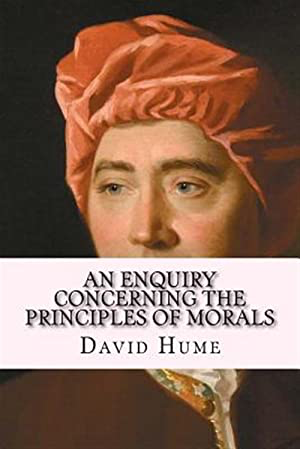
3:16: You do sound like an atheist.
DH: The whole is a riddle, an enigma, an inexplicable mystery. Doubt, uncertainty, suspense of judgment appear the only result of our most accurate scrutiny, concerning this subject.
3:16: Like many irreligious people then you see most theologians as insincere when pushed, but are you saying atheists have no grounds to be dogmatic either? And do you see the root of the problem in drawing inferences from inappropriate evidence, in theology’s case a priori reasons rather than morals?
DH: Exactly. We can judge only of the operations of causes by experience, and that, reasoning a priori, anything might appear able to produce any thing. We could not know that stones would descend, or fire burn, had we not experience of these effects; and indeed, without such experience, we could not certainly infer the existence of one thing from that of another. This is no great paradox, but seems to have been the opinion of several philosophers, and seems the most obvious and familiar sentiment on that subject; but, tho' all inferences concerning matter of fact be thus resolved into experience, these inferences are no way weakened by such an assertion, but on the contrary will be found to acquire more force, as long as men are disposed to trust to their experience rather than to mere human reasoning.
3:16: So how do we have general ideas if everything is down to particulars of experience?
DH: We have no abstract or general ideas, properly so speaking; and that those ideas, which are called general, are nothing but particular ideas affixed to general terms. Thus, when I think of a horse in general, I must always conceive that horse as black or white, fat or lean, etc. and can form no notion of a horse that is not of some particular colour or size. In prosecution of the same topic, I say that we have no general idea of existence, distinct from every particular existence.
3:16: Do you deny that ours is a fully determined mechanical universe?
DH: To answer this I must use the freedom to deliver a short history of a particular opinion in philosophy. When men considered the several effects and operations of nature, they were led to examine into the force or power by which they were performed; and they divided into several opinions upon this head, according as their other principles were more or less favourable to religion. The followers of Epicurus and Strato asserted that this force was original and inherent in matter, and, operating blindly, produced all the various effects which we behold. The Platonic and Peripatetic Schools, perceiving the absurdity of this proposition, ascribed the origin of all force to one primary efficient cause, who first bestowed it on matter, and successively guided it in all its operations.
But all the ancient philosophers agreed that there was a real force in matter, either original or derived; and that it was really fire which burnt, and food that nourished, when we observed any of these effects to follow upon the operations of these bodies: The Schoolmen supposed also a real power in matter, to whose operations however the continual concurrence of the Deity was requisite, as well as to the support of that existence which had been bestowed on matter, and which they considered as a perpetual creation. No one, till Descartes and Malbranche, ever entertained an opinion that matter had no force either primary or secondary, and independent or concurrent, and could not so much as properly be called an instrument in the hands of the Deity, to serve any of the purposes of Providence.
3:16: So it’s Descartes and Malbranche who changed this assumption of a deterministic universe?
DH: Indeed. These philosophers last mentioned substituted the notion of occasional causes, by which it was asserted that a billiard ball did not move another by its impulse, but was only the occasion why the Deity, in pursuance of general laws, bestowed motion on the second ball. But, tho' this opinion be very innocent, it never gained great credit, especially in England, where it was considered as too much contrary to received popular opinions, and too little supported by philosophical arguments, ever to be admitted as any thing but a mere hypothesis. Cudworth, Lock and Clark make little or no mention of it. Sir Isaac Newton (tho' some of his followers have taken a different turn of thinking) plainly rejects it, by substituting the hypothesis of an ethereal fluid, not the immediate volition of the Deity, as the cause of attraction. And, in short, this has been a dispute left entirely to the arguments of philosophers.
3:16: But was it Newton who destroyed any attempt to understand the world as a deterministic machine with his discovery of gravity – even though he found gravity’s spooky occult nature impossible to accept at some level ?
DH: Yes. While Newton seemed to draw off the veil from some of the mysteries of nature, he showed at the same time the imperfections of the mechanical philosophy, so agreeable to the natural vanity and curiosity of men; and thereby restored her ultimate secrets to that obscurity, in which they ever did and ever will remain.
3:16: Ralph Cudworth - you mentioned him above, he pointed out that the symbols of the human mind and language are not keyed automatically to emotions and they don’t pick out mind-independent objects or events. He thinks there’s no reference relation there but that only by inward ideas produced by innate cognoscitive powers do we know and understand all external individual things. Do you agree with this innatist approach that influenced Kant?
DH: Kant was dogmatically asleep when I met him sadly. But yes, in as much as our objects of thought constructed by these cognoscitive powers cannot be reduced to a peculiar nature belonging to whatever we’re talking about.
3:16: Hmmm. That makes the empiricist label used to contrast your position (and Locke’s and Berkeley’s too I guess) with the rationalists (Leibniz, Spinoza et al) more shaky than I supposed. Is this why none of your arguments should be taken as substantive – they’re just showing that we really are gripped by intellectual vanity which leads to dogmas and cloaks the truth, that reality is forever an ultimate secret, too obscure for weak animal minds like ours - including even theological truths?
DH: The topic there handled is somewhat abstract: but I believe any one will easily perceive the truth of this assertion, and that I am far from pretending to deny God's being the first cause and prime mover of the Universe. That my words could have no such meaning as they stand connected, is to me so evident, that I could pledge on my head, not only my small credit as a philosopher, but even all my pretensions to trust or belief in the common affairs of life.
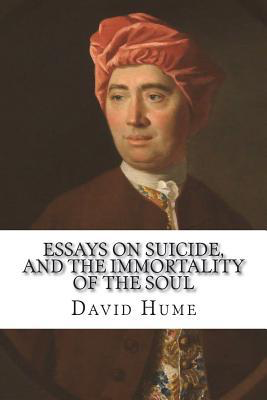
3:16: But you do deny the immortality of the soul don’t you? Isn’t that what you said earlier?
DH: I have not anywhere that I remember denied the immateriality of the soul in the common sense of the word. I only say that that question did not admit of any distinct meaning; because we had no distinct idea of substance.
3:16: And that’s because Newton’s account of gravity made any mechanical notion of substance obsolete?
DH: Yes. This opinion may be found everywhere in Mr. Lock, as well as in Bishop Berkley. To be a philosophical sceptic is the first and most essential step towards being a sound, believing Christian.
3:16: You're a great admirer of Newton aren't you?
DH: In Newton this island may boast of having produced the greatest and rarest genius that ever arose for the ornament and instruction of the species. From modesty, ignorant of his superiority above the rest of mankind; and thence, less careful to accommodate his reasonings to common apprehensions: More anxious to merit than to acquire fame: He was, from these causes, long unknown to the world; but his reputation at last broke out with a lustre, which scarcely any writer, during his own life-time, had ever before attained.
3:16: Newton was a believer in a Deity though wasn't he? Was he a hypocrite because of this?
DH: No. I maintain, that Newton, Locke, Clarke, etc. being Arians or Socinians, were very sincere in the creed they profest: And I always oppose this argument to some libertines, who will needs have it that it was impossible, but that these philosophers must have been hypocrites.
3:16: Are you not impressed by the arguments of atheists or pantheists?
DH: The Atheist says he knows nothing of the “cause” of the universe, and therefore has nothing to say about Deity except that he perceives the idea to be a human invention: the Pantheist asserts that the “cause” is within the universe—an unadventurous truism enough, when we agree that “universe” means “everything”—and then proceeds to label the universe “God”, without pretending to know anything of the nature of the mystery he has named.
3:16: I called you irreligious earlier, rather than a dogmatic atheist? Would that be fair?
DH: The Old Testament, if considered as a general rule of conduct, would lead to consequences destructive of all principles of humanity and morality. The gazing populace receive greedily, without examination, whatever soothes superstition and promotes wonder. The Divinity is a boundless Ocean of Bliss and Glory: Human minds are smaller streams, which, arising at first from the ocean, seek still, amid all wanderings, to return to it, and to lose themselves in that immensity of perfection. When checked in this natural course, by vice or folly, they become furious and enraged, and, swelling to a torrent, do then spread horror and devastation on the neighboring plains. The nature of a Divine Being; his attributes, his decrees, his plan of providence - these have been always subjected to the disputations of men: Concerning these, human reason has not reached any certain determination.
But these are topics so interesting that we cannot restrain our restless inquiry with regard to them; though nothing but doubt, uncertainty, and contradiction have as yet been the result of our most accurate researches. Methinks I am like a man, who having struck on many shoals, and having narrowly escap'd shipwreck in passing a small frith, has yet the temerity to put out to sea in the same leaky weather-beaten vessel, and even carries his ambition so far as to think of compassing the globe under these disadvantageous circumstances. Am I Irreligious? It’s true Richard. When I hear a man is religious , I conclude he is a rascal , though I know some instances of very good men being religious .
3:16: You sounded like you were destroying all the foundations of morality too. Was that not correct either?
DH: I have indeed denied the eternal difference of right and wrong in the sense in which Clark and Woolaston maintained them, viz. that the propositions of morality were of the same nature with the truths of mathematics and the abstract sciences, the objects merely of reason, not the feelings of our internal tastes and sentiments. In this opinion I concur with all the ancient moralists, as well as with Mr. Hutchison professor of moral philosophy in the University of Glasgow, who, with others, has revived the ancient philosophy in this particular.
3:16: So what you’re saying is that the different things we think about need to be established by appropriate evidence rather than thinking reason is universally applicable to all cases?
DH: Look, when I assert that justice is an artificial not a natural virtue, I am sensible that I employed words that admit of an invidious construction; and therefore make use of all proper expedients, by definitions and explanations, to prevent it. By the natural virtues I plainly understand compassion and generosity, and such as we are immediately carried to by a natural instinct; and by the artificial virtues I mean justice, loyalty, and such as require, along with a natural instinct, a certain reflection on the general interests of human society, and a combination with others. In the same sense, sucking is an action natural to man, and speech is artificial. But what is there in this doctrine that can be supposed in the least pernicious? Have I not expressly asserted, that justice, in another sense of the word, is so natural to man, that no society of men, and even no individual member of any society, was ever entirely devoid of all sense of it? Some persons (tho' without any reason, in my opinion) are displeased with Mr. Hutchison's philosophy, in founding all the virtues so much on instinct, and admitting so little of reason and reflection. Those should be pleased to find that so considerable a branch of the moral duties are founded on that principle.
3:16: I see. So reason is sometimes an appropriate foundation, as in these artificial virtues, but not elsewhere?
DH: I just said that Richard.
3:16: So vice is just a construction out of our minds and not objectively ‘out there’ independently, so to speak?
DH: Vice is just a perception of the mind Richard. Take any action allow’d to be vicious: Wilful murder, for instance. Examine it in all lights, and see if you can find that matter of fact, or real existence, which you call vice. In whichever way you take it, you find only certain passions, motives, volitions and thoughts. There is no other matter of fact in the case. The vice entirely escapes you, as long as you consider the object. You never can find it, till you turn your reflexion into your own breast, and find a sentiment of disapprobation, which arises in you, towards this action. Here is a matter of fact; but ’tis the object of feeling, not of reason. It lies in yourself, not in the object. So that when you pronounce any action or character to be vicious, you mean nothing, but that from the constitution of your nature you have a feeling or sentiment of blame from the contemplation of it. Vice and virtue, therefore, may be compar’d to sounds, colours, heat and cold, which, according to modern philosophy, are not qualities in objects, but perceptions in the mind
3:16: But don’t you say that people have no obligation not to lie or fulfil contracts and so forth?
DH: Not at all. I do not maintain that men lie under no obligation to observe contracts, independent of society; but only, that they never would have formed contracts, and even would not have understood the meaning of them, independent of society. I offer further to prove, that, suppose a promise was intelligible before human conventions had established it, it would not be attended with any moral obligation. I do not understand moral in such an extended sense, as to deny the obligation of promises, independent of society; seeing I not only assert what is above-represented, but likewise that the laws of justice are universal, and perfectly inflexible. It is evident, that suppose mankind, in some primitive unconnected state, should by some means come to the knowledge of the nature of those things which we call contracts and promises; that this knowledge would have laid them under no such actual obligation, if not placed in such circumstances as give rise to these contracts.
3:16: So is it on the science of man that everything else, all other science, rests?
DH: Yes. The science of man is the only solid foundation for the other sciences, so the only solid foundation we can give to this science itself must be laid on experience and observation. 'Tis no astonishing reflection to consider, that the application of experimental philosophy to moral subjects should come after that to natural at the distance of above a whole century; since we find in fact, that there was about the same interval betwixt the origins of these sciences; and that reckoning from Thales to Socrates, the space of time is nearly equal to that betwixt my Lord Bacon and some late philosophers in England, who have begun to put the science of man on a new footing, and have engaged the attention, and excited the curiosity of the public.
3:16: So this science of man is a new type of philosophy?
DH: Yes, and it promises more both to the entertainment and advantage of mankind, than any other with which the world has been yet acquainted. Most of the philosophers of antiquity, who treated of human nature, have shown more of a delicacy of sentiment, a just sense of morals, or a greatness of soul, than a depth of reasoning and reflection. They content themselves with representing the common sense of mankind in the strongest lights, and with the best turn of thought and expression, without following out steadily a chain of propositions, or forming the several truths into a regular science.
3:16: So this new approach promises more accuracy?
DH: Yes. It’s at least worth while to try if the science of man will not admit of the same accuracy which several parts of natural philosophy are found susceptible of. There seems to be all the reason in the world to imagine that it may be carried to the greatest degree of exactness. If, in examining several phenomena, we find that they resolve themselves into one common principle, and can trace this principle into another, we shall at last arrive at those few simple principles, on which all the rest depend. And tho' we can never arrive at the ultimate principles, 'tis a satisfaction to go as far as our faculties will allow us.
3:16: This is what you’re doing?
DH: Yes. I propose to anatomize human nature in a regular manner, and promise to draw no conclusions but where I am authorized by experience. I talk with contempt of hypotheses; and insinuate, that such of our countrymen as have banished them from moral philosophy, have done a more signal service to the world, than my Lord Bacon, whom I consider as the father of experimental physics. I mention, on this occasion, Mr. Locke, my Lord Shaftesbury, Dr. Mandeville, Mr. Hutcheson, Dr. Butler, who, tho' they differ in many points among themselves, seem all to agree in founding their accurate disquisitions of human nature entirely upon experience.
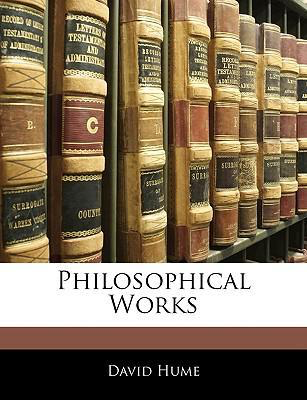
3:16: And is this science of mankind the basis of all other sciences?
DH: Richard, it may be safely affirmed, that almost all the sciences are comprehended in the science of human nature, and are dependent on it. The sole end of logic is to explain the principles and operations of our reasoning faculty, and the nature of our ideas; morals and criticism regard our tastes and sentiments; and politics consider men as united in society, and dependent on each other.
3:16: If it’s your position that we can’t ever know ultimate principles of the science of man then why do you set such great store by this science?
DH: But Richard, if this impossibility of explaining ultimate principles should be esteemed a defect in the science of man, I will venture to affirm, that 'tis a defect common to it with all the sciences, and all the arts, in which we can employ ourselves, whether they be such as are cultivated in the schools of the philosophers, or practiced in the shops of the meanest artisans. None of them can go beyond experience, or establish any principles which are not founded on that authority. Moral philosophy has, indeed, this peculiar disadvantage, which is not found in natural, that in collecting its experiments, it cannot make them purposely, with premeditation, and after such a manner as to satisfy itself concerning every particular difficulty which may arise. When I am at a loss to know the effects of one body upon another in any situation, I need only put them in that situation, and observe what results from it.
But should I endeavour to clear up after the same manner any doubt in moral philosophy, by placing myself in the same case with that which I consider, 'tis evident this reflection and premeditation would so disturb the operation of my natural principles, as must render it impossible to form any just conclusion from the phenomenon. We must therefore glean up our experiments in this science from a cautious observation of human life, and take them as they appear in the common course of the world, by men's behaviour in company, in affairs, and in their pleasures. Where experiments of this kind are judiciously collected and compared, we may hope to establish on them a science, which will not be inferior in certainty, and will be much superior in utility to any other of human comprehension.
3:16: If you don’t think we can ground any of our beliefs in the material world then why do you say nevertheless we should stick with the material world?
DH: How can we satisfy ourselves without going on in infinitum? And, after all, what satisfaction is there in that infinite progression? Let us remember the story of the Indian philosopher and his elephant. It was never more applicable than to the present subject. If the material world rests upon a similar ideal world, this ideal world must rest upon some other; and so on, without end. It were better, therefore, never to look beyond the present material world. Indulge your passion for science…but let your science be human, and such as may have a direct reference to action and society. Be a philosopher; but amidst all your philosophy, be still a man.
3:16: Although mankind is full of different customs do you contend that we are all the same at the core?
DH: Here's a thing Richard: should a traveler, returning from a far country, bring us an account of men wholly different from any with whom we were ever acquainted, men who were entirely divested of avarice, ambition, or revenge, who knew no pleasure but friendship, generosity, and public spirit, we should immediately, from these circumstances, detect the falsehood and prove him a liar with the same certainty as if he had stuffed his narration with stories of centaurs and dragons, miracles and prodigies.
3:16: Are you a mysterian, someone who thinks there are questions we might be able to ask but whose answers go beyond human capacities to understand?
DH: Yes. For example, it’s universally allowed, that the capacity of the mind is limited, and can never attain a full and adequate conception of infinity: And tho' it were not allow'd, 'twou'd be sufficiently evident from the plainest observation and experience. 'Tis also obvious, that whatever is capable of being divided in infinitum, must consist of an infinite number of parts, and that 'tis impossible to set any bounds to the number of parts, without setting bounds at the same time to the division. It requires scarce any induction to conclude from hence, that the idea, which we form of any finite quality, is not infinitely divisible, but that by proper distinctions and separations we may run up this idea to inferior ones, which will be perfectly simple and indivisible.
In rejecting the infinite capacity of the mind, we suppose it may arrive at an end in the division of its ideas; nor are there any possible means of evading the evidence of this conclusion. I say that the most perfect philosophy of the natural kind only staves off our ignorance a little longer: as perhaps the most perfect philosophy of the moral or metaphysical kind serves only to discover larger portions of it. Thus the observation of human blindness and weakness is the result of all philosophy, and meets us at every turn, in spite of our endeavours to elude or avoid it.
3:16: is it fair to say that you introduced probability into epistemology?
DH: What I do say is that all knowledge degenerates into probability.
3:16: Is this why you’re unconvinced by any claims about miracles?
DH: Yes. A miracle is a violation of the laws of nature; and because firm and unalterable experience has established these laws, the case against a miracle is—just because it is a miracle—as complete as any argument from experience can possibly be imagined to be. Why is it more than merely probable that all men must die, that lead cannot when not supported remain suspended in the air, that fire consumes wood and is extinguished by water, unless it is that these events are found agreeable to the laws of nature, and for things to go differently there would have to be a violation of those laws, or in other words a miracle? Nothing is counted as a miracle if it ever happens in the common course of nature. When a man who seems to be in good health suddenly dies, this isn't a miracle; because such a kind of death, though more unusual than any other, has yet often been observed to happen. But a dead man’s coming to life would be a miracle, because that has never been observed in any age or country.
So there must be a uniform experience against every miraculous event, because otherwise the event wouldn't count as a ‘miracle’. And as a uniform experience amounts to a proof, we have here a direct and full proof against the existence of any miracle, just because it’s a miracle; and such a proof can’t be destroyed or the miracle made credible except by an opposite proof that is even stronger. This clearly leads us to a general maxim that deserves of our attention: No testimony is sufficient to establish a miracle unless it is of such a kind that its falsehood would be more miraculous than the fact that it tries to establish. And even in that case there is a mutual destruction of arguments, and the stronger one only gives us an assurance suitable to the force that remains to it after the force needed to cancel the other has been subtracted.
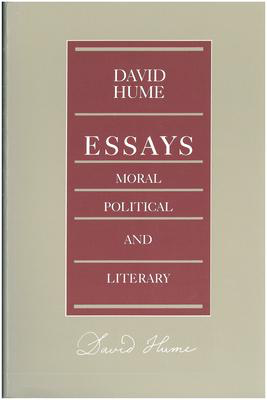
3:16: And as a summary of everything you’re saying, is it fair to say that we must take no heed of any claims that aren’t based either on reason or appropriate experimental evidence?
DH: I’d put it like this Richard: When we run over libraries, persuaded of these principles, what havoc must we make? If we take in our hand any volume of divinity or school metaphysics, for instance, let us ask, Does it contain any abstract reasoning concerning quantity or number? No. Does it contain any experimental reasoning concerning matter of fact and existence? No. Commit it then to the flames, for it can contain nothing but sophistry and illusion.
3:16: Philosophy makes it clear that philosophy doesn’t govern the ways we live doesn’t it?
DH: Nothing appears more surprising to those, who consider human affairs with a philosophical eye, than the easiness with which the many are governed by the few; and the implicit submission, with which men resign their own sentiments and passions to those of their rulers.
3:16: And how does this happen?
DH: Well for sure it is not reason which carries the prize but eloquence; and no man needs ever despair of gaining proselytes to the most extravagant hypothesis, who has art enough to represent it in any favourable colours. The victory is not gained by the men at arms, who manage the pike and the sword; but by the trumpeters, drummers, and musicians of the army.
3:16: Rousseau once sat on your lap?
DH: He is the person whom I most revere both for the force of his genius and the greatness of his mind. But the face of the earth is continually changing, by the increase of small kingdoms into great empires, by the dissolution of great empires into smaller kingdoms, by the planting of colonies, by the migration of tribes. Is there any thing discoverable in all these events, but force and violence? Where is the mutual agreement or voluntary association he so much talked of?
3:16: You also say that skepticism can lead to despondency and melancholy. How do you cope?
DH: Skepticism may be theoretically irrefutable, but even the skeptic must ‘act and live, and converse, like other men’, since human nature gives him no choice. Most fortunately it happens, that since reason is incapable of dispelling these clouds, nature herself suffices to that purpose, and cures me of this philosophical melancholy and delirium, either by relaxing this bent of mind, or by some avocation, and lively impression of my senses, which obliterate all these chimeras. I dine, I play a game of backgammon, I converse, and am merry with my friends; and when after three or four hours' amusement, I would return to these speculations, they appear so cold, and strained, and ridiculous, that I cannot find in my heart to enter into them any farther.
3:16: So holding on to non-philosophical ways is essential to doing good philosophy in the sense of the science of man?
DH: Carelessness and inattention alone can afford us any remedy. For this reason I rely entirely upon them.
3:16: So that’s why you’re so cheerful. Has the ascetic life never interested you?
DH: No. Celibacy, fasting, penance, mortification, self-denial, humility, silence, solitude and the whole train of monkish virtues stupefy the understanding and harden the heart, obscure the fancy and sour the temper. A gloomy hair-brained enthusiast, after his death, may have a place in the calendar, but will scarcely ever be admitted, when alive, into intimacy and society, except by those who are as delirious and dismal as himself.
3:16: What are your thoughts about suicide?
DH: When suicide is out of fashion we conclude that none but madmen destroy themselves; and all the efforts of courage appear chimerical to dastardly minds. Nevertheless, how many instances are there, well attested, of men, in every other respect perfectly discreet, who, without remorse, rage, or despair, have quitted life for no other reason than because it was a burden to them, and have died with more composure than they lived?
3:16: Life can be intolerable can’t it?
DH: The body is confined to one planet, along which it creeps with pain and difficulty. Pleasure, scarcely in one instance, is ever able to reach ecstasy and rapture; and in no one instance can it continue for any time at its highest pitch and altitude. The spirits evaporate, the nerves relax, the fabric is disordered, and the enjoyment quickly degenerates into fatigue and uneasiness. But pain often, good God, how often! rises to torture and agony; and the longer it continues, it becomes still more genuine agony and torture. Patience is exhausted, courage languishes, melancholy seizes us, and nothing terminates our misery but the removal of its cause, or another event, which is the sole cure of all evil, but which, from our natural folly, we regard with still greater horror and consternation.
3:16: You sound like Schopenhauer who complained that life is terrible, and Nietzsche who agreed with him.
DH: Why have all men, I ask, in all ages, complained incessantly of the miseries of life? They have no just reason, says one: These complaints proceed only from their discontented, repining, anxious disposition. And can there possibly, I reply, be a more certain foundation of misery than such a wretched temper? I have not read this Mr Schopenhauer however. And is that the same Mr Nietzsche you mentioned before?
3:16: It is. Now, turning to politics, are you a democrat?
DH: Liberty is the perfection of civil society; but still authority must be acknowledged essential to its very existence. Democracies are turbulent. Aristocracies are better adapted for peace and order, and accordingly were most admired by ancient writers; but they are jealous and oppressive. It may be pronounced as an universal axiom in politics, that an hereditary prince, a nobility without vassals, and a people voting by their representatives, form the best monarchy, aristocracy, and democracy. All free governments must consist of two councils, a lesser and greater; or, in other words, of a senate and people. The people would want wisdom, without the senate: The Senate, without the people, would want honesty. But there is no such thing as freedom of choice unless there is freedom to refuse.
3:16: Finally are there five books other than your own that you could recommend to us that will take us further into your philosophical world?
DH: Yes.
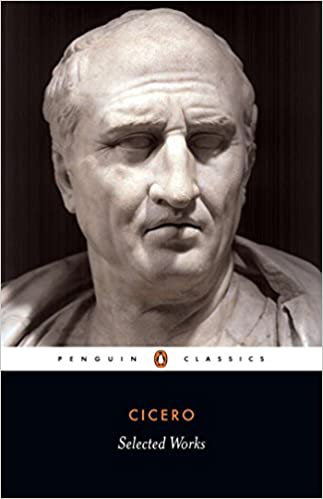
Cicero,

Descartes,

Bayle,
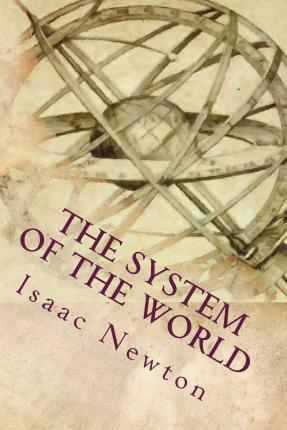
Newton.
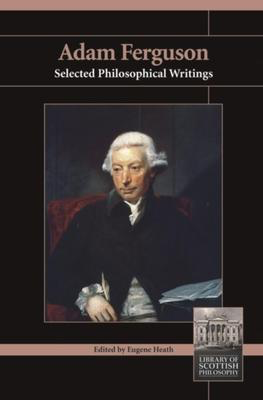
Adam Ferguson
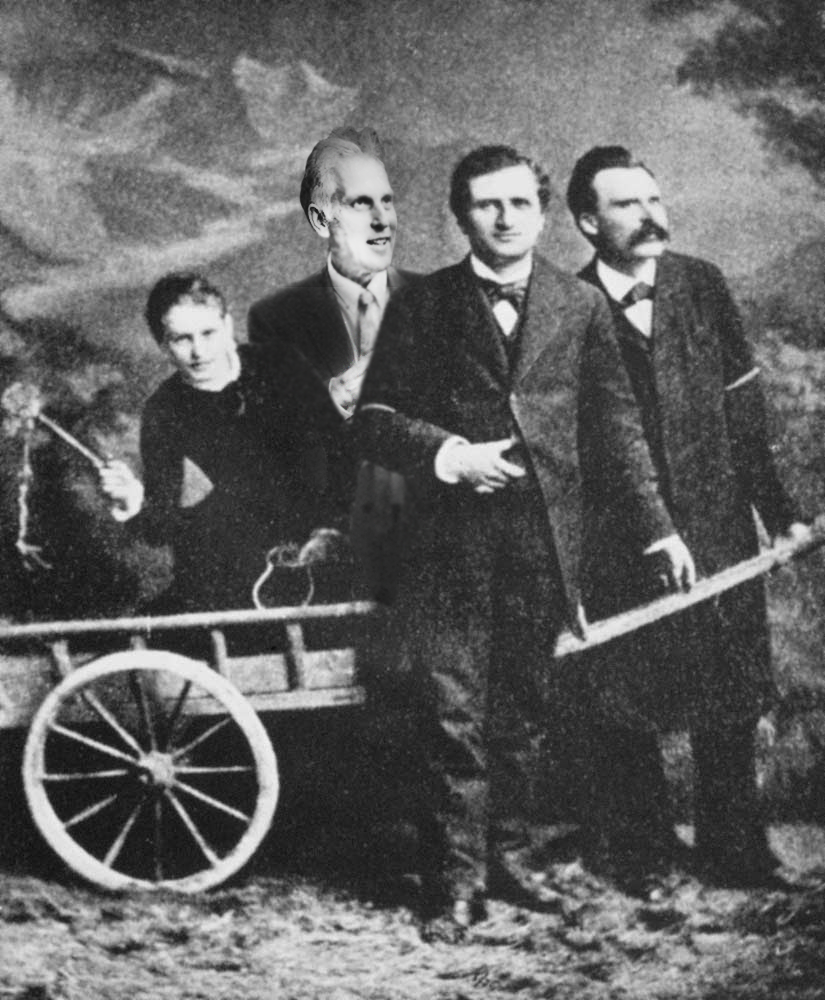
Other Interviews: Newton, Berkeley, Hobbes, Locke, Cudworth, Hume, Leibniz, Leporin Erxleben, Fichte, Schiller, Herder, Kierkegaard, Schelling, Kant, Dilthey, Marx, Descartes, Hegel, Schopenhauer, Nietzsche
About the Author
Richard Marshall is still biding his time.